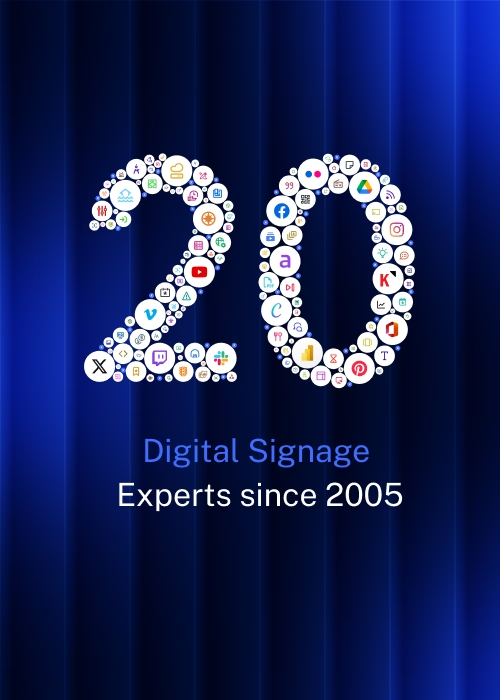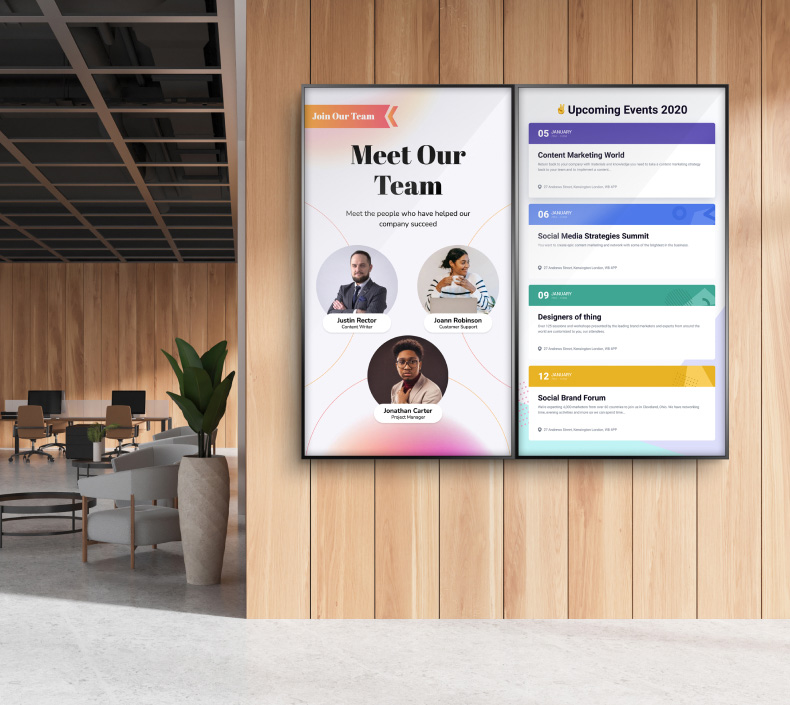Business Technologies That Yield Competitive Advantage
The business landscape has undergone various digital transformations in recent years. There are many innovations for a modern business, including AI, remote working, cloud computing, and electronic communications. Additionally, there's a shift into a mobile-first business environment that puts more control in the hand of customers. These new and numerous business technologies can offer multiple benefits that shouldn't be ignored.

This digital transformation has created new business opportunities for entrepreneurs. Now, businesses can reach more customers than ever and increase their sales and brand presence. Businesses that ignore technological advances will fall behind companies that are quick to adopt new technologies. Some of the business technologies to consider include:
1. Computers and Computer Software
Computers have become vital business tools. Firstly, computers have simplified office management through data management, data exchange, and information storage. You can easily capture, record, and present data using word processing software and spreadsheet applications.
In addition to data tracking and storage, computers have simplified communication through Electronic email and messenger systems. They can be easily connected to create a network and share a printer and other resources.
A business computer can either be a desktop model or a mobile laptop. Personal computers (PCs) running on Microsoft Windows are pretty popular, although some creative professionals prefer to use Macintosh computers powered by Apple operating system.
Once you buy computers for your staff, it's time to furnish them with productivity tools. For instance, your marketing team will need presentation software like Microsoft PowerPoint or Apple Keynote for sales presentations. Moreover, you should invest in word processing software like Microsoft Word and a financial spreadsheet system such as Microsoft Excel.
2. CRM Software
A Customer Relationship Management (CRM) system simplifies the collection and management of customer information. Contrary to popular opinion, you don't have to maintain an extensive database of customer information to reap the benefits of CRM software applications. Small and medium-sized enterprises can also use CRM systems to enhance their relationships with customers and find new customers.
In fact, a CRM solution will track all customer communication so that you can analyze customer behavior and interactions. The best CRM systems will allow for integration with your online chat, email, and document sharing platforms.
The primary benefit of CRM applications is improved customer satisfaction. Since you'll have customer information centralized in one place, you'll be able to personalize communication. In addition, your customer service team will have a competitive advantage, as they can see a particular customer’s information with a click of a button. CRM databases can store a client’s email address, social media, job title, birthdays, and even the language they speak.
Customer relationship management systems will present more sales opportunities for your company. You can track purchasing patterns and trends and improve your marketing campaigns. What’s more, you'll identify the right time to promote your products.
3. Cloud Storage
Storage is among the most popular cloud services for businesses today. Traditionally, a computer hard drive was the most used storage device. However, it was typical for personal computers to crash, resulting in data and information loss. On the other hand, external hard drives are vulnerable to viruses. Businesses that want to keep their information safe can leverage on cloud-based storage.
This technology costs less than traditional storage devices, and it's accessible from anywhere. Companies like Google, AT&T, HP, and Amazon offer both private and public cloud storage packages. These solutions are scalable, which means you can expand your storage capacity as your business grows.
Cloud storage also promises to enhance security. Your data and information will be backed up to several services. Therefore, your data will stay safe even if one server crashes. Additionally, you will not need flash drives or hard disks to access your data. You can sync the cloud data with any device, and your employees will only need an internet connection to complete specific tasks.
4. Inventory Control System
Supermarkets, restaurants, and manufacturing companies are some of the businesses that will benefit from an inventory control system. These business technologies will maintain your stock at optimal levels to fulfill your sales obligations.
An inventory control solution will optimize your entire supply chain, from ordering new inventory from your vendors to delivering products to your customers. If you deal with physical products, you need productivity tools that prevent stockouts. For example, you can offer promotional discounts to sell extra stock in case of overstocking. This software is essential if you sell products that have seasonal changes in demand.
Another benefit of an inventory control system is barcode identification. You'll easily track inventory and check an item’s price, location, and quantity. What’s more, you can manage the stock on your phone or desktop. As a result, warehouse managers will keep up with inventory thresholds at all times.
Inventory control systems will also generate reports on sales patterns. Above all, you'll see which products are in high demand, and you can prioritize ordering to ensure you have the most profitable stock at all times.
5. Financial Accounting System
Accounting is an integral part of any business. Financial software has become one of the accounting fundamentals for firms operating in the digital economy. It will help you manage your finances and automate tedious tasks like feeding data into a spreadsheet.
There are many accounting applications to choose from, and your choice will depend on your business's size. Smaller companies have found success in using Quickbooks by Intuit, while larger companies prefer more advanced systems like Sage Accpac and Sap Business One. To clarify, you can consider the factors below when choosing a financial accounting system:
Ease of Use
Usability is an essential feature of any financial accounting system. You need a system that anyone who isn't an accountant or tech-savvy can use. Also, you can get software that allows for a degree of customization. For example, a system that allows for custom functions will make it easy to add additional information for vendors, inventory, and customers.
Security
The best accounting system will offer stringent safety measures for your financial information. Ask about user-based access functions as they'll help you restrict access. For example, an employee tasked with payroll management assignments will only access payroll-related information.
Integration
Financial accounting software that integrates with other information systems used in your business will streamline your operations. Look out for solutions that can integrate with CRM, ERP, and inventory control systems.
6. Digital Signage

Businesses can no longer rely on printed signage to engage customers. The modern customer is sophisticated and tech-savvy, and their purchasing decisions are increasingly influenced by digital content. As a result, you should invest in digital displays to enhance the shopping experiences of your visitors.
The primary advantage of digital signage is its ability to attract and retain attention. You can showcase high-resolution videos and images to grab the attention of passersby and stand out from competitors. Similarly, you can display your social media feeds and invite your customers to engage with your brand on various platforms.
Digital signage can also create a sense of urgency and boost impulse purchases. By highlighting special deals and discounts, you'll boost sales and improve your profit margins. Additionally, you can entertain your visitors and post informational content to increase customer loyalty.
7. VoIP Phone Systems
Business technologies have transformed the way people communicate, thanks to innovations like emails, video conferencing, webchat, and social media platforms like Facebook. Voice over Internet Protocol allows people to make voice-based phone calls via the internet. Traditionally, businesses made phone calls over landlines or mobile networks. However, you don't need a lot of hardware with VoIP technology, as you can make calls with your mobile phone, computer, or desktop.
The mobility of VoIP phone systems has significantly contributed to their popularity. If you have remote employees, they can set up their office anywhere in the world as long as they have an internet connection. Moreover, you can scale the phone extensions without buying extra hardware. This scalability is great for businesses that plan to add employees down the line.
8. Payment Processing Software
Your ability to receive and process payments will influence the customer experience in your business. The best approach is to accept a variety of payment options to accommodate every client. Most modern customers prefer to pay with their credit and debit cards, so you should invest in a credit card payment processor. Similarly, you should enable subscription billing plans and facilitate PayPal, Stripe, Square, and contactless payments.
When shopping for credit card processors, look out for fees, customer support, and setup times. The processor should accept popular credit cards like American Express, Mastercard, Discover, and VISA. Additionally, the solution should be compatible with near-field communication (NFC) technology to facilitate mobile-wallet payments like Apple Pay.
9. Cloud Computing
Businesses are embracing cloud computing to increase internal and external collaboration. Employees can access project files no matter where they're and make real-time edits. What’s more, remote workers can quickly sync data and take the office with them to any location.
Cloud computing has also revolutionized the way businesses store data. You don’t have to keep upgrading your hard-drive space, which can be costly. In addition, you'll only pay for the space you need with cloud services, and you can easily upgrade to accommodate your firm's growing needs.
One of the outstanding advantages of cloud computing is disaster recovery. Traditionally, businesses were vulnerable to data loss from malware attacks. In such cases, it was possible to lose critical customer data to digital criminals. In contrast, cloud computing services update your data in real-time on several servers.
10. Social Media Management Software
It has become imperative for modern businesses to engage social media users on various platforms. However, engaging with your social media community can be time-consuming. You need social management software to schedule posts, monitor feeds, generate analytics, and interact with users.
The software will manage multiple social accounts and monitor keywords for leads. By simplifying the content curation process, you'll have more time to engage your followers for meaningful interactions. Additionally, you'll maintain a consistent brand identity, which is vital to stand out on social media.

In Conclusion
Modern companies need the latest business technologies to stay competitive. Thankfully, there are many tools, services, and applications you can use to automate many tasks and streamline operations in your business. These technologies include customer relationship management software, VoIP technology, task management solutions, cloud computing and storage, and payment processing software. To reap these technologies' benefits, you'll need computers equipped with various productivity tools like presentation software and word processing packages.







